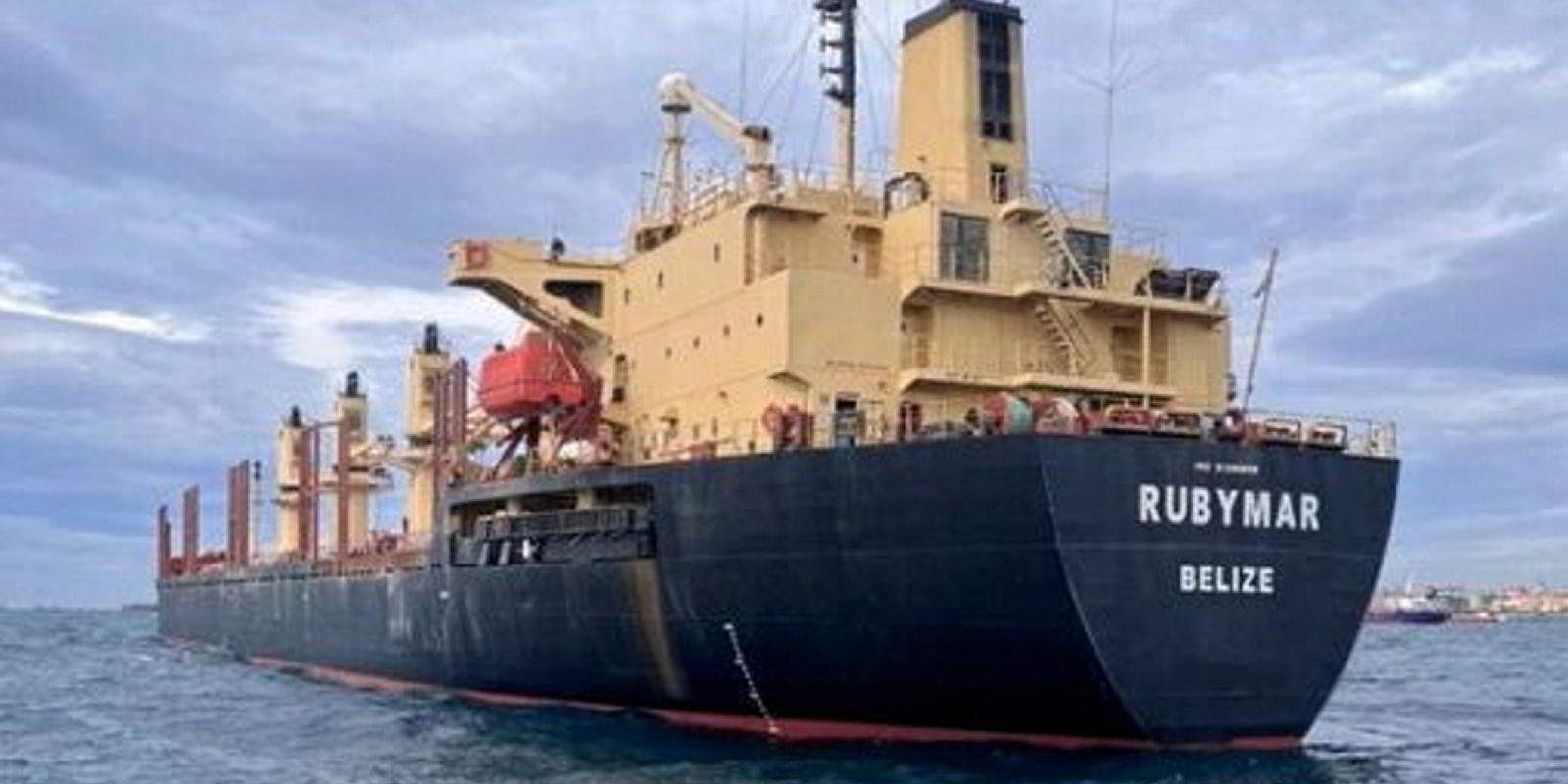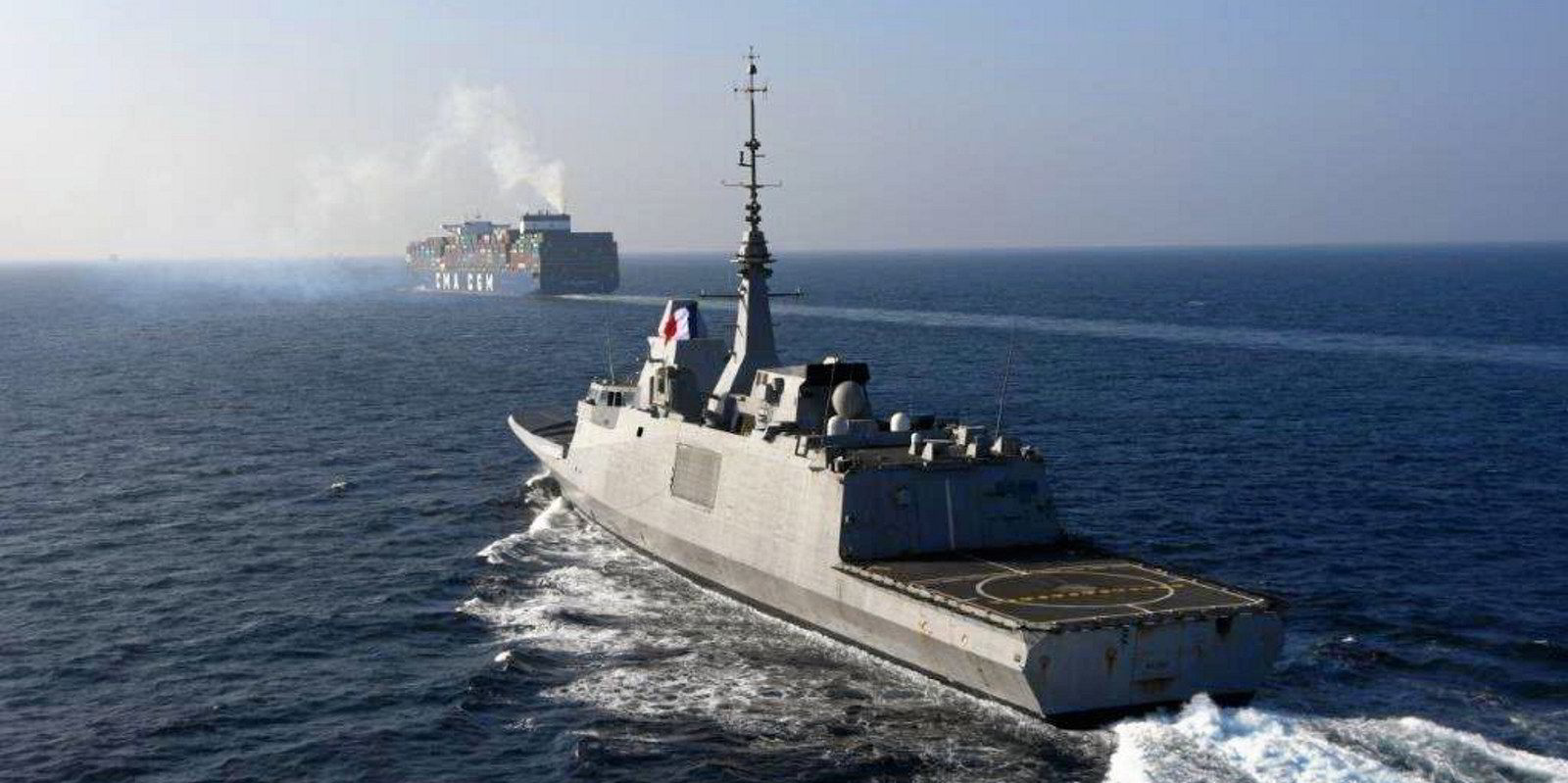A general cargo vessel abandoned by its crew after a missile strike earlier on Monday has sunk in the Bab el-Mandeb strait, Yemen’s Houthi rebel group claimed.
“The operation resulted in its [the ship’s] complete sinking,” the Houthis’ military spokesman, Yahya Saree, said in a televised statement.
Spokespersons with Lebanon-based GMZ Ship Management, the manager of the 32,200-dwt Rubymar (built 1997), did not immediately respond to a request for comment.
The Houthis’ claim was partially confirmed by maritime security intelligence firm Diaplous on Tuesday. The Rubymar was spotted half-sunk early on 20 February and would “likely... be underwater in the following hours,” Diaplous said.
The ship's crew were safely evacuated the day before, with the help of a Western warship and a container ship that rushed to assist.
The Houthis targeted the Rubymar because its registered owner is an entity based in the UK — Golden Adventure Shipping.
This is in line with their policy since November of attacking ships linked with Israel, the US and the UK to pressure them to stop the war waged against the Hamas group in Gaza.
The US and the UK have been retaliating against the Houthi strikes since December, with a string of missile and bomb attacks throughout Houthi-controlled areas of Yemen.
Contrary to claims by US military officials, however, the airstrikes do not seem to have degraded the Houthis’ capacity to carry out missile attacks against commercial ships in the Red Sea, Bab el-Mandeb strait and Gulf of Aden.
The same goes for Operation Prosperity Guardian, a coalition of mainly Western states, to send patrol boats into the region and protect the vital shipping lane.
“The Yemeni Armed Forces affirm their full right to take further military measures … in defence of our people … and in support of the oppressed Palestinian people,” Saree said on Monday.
On Monday, the European Union launched its own naval operation in the area. It described the initiative, Aspides — the Greek word for “shields” — as a “defensive maritime security operation … to restore and safeguard freedom of navigation”.
The object of the European naval presence is to “provide maritime situational awareness, accompany vessels and protect them against possible multi-domain attacks”, the EU said.
The World Shipping Council, which represents big liner companies, expressed its “gratitude” to the EU for the move.
“The security situation around the Red Sea continues to be dire, with vessels attempting to transit being fired upon with missiles and drones as well as suffering attacks from armed fighters on the water,” the council said.
Container ships are among the ship types worst affected by the disruption caused to maritime traffic in the area.
According to PortWatch, a website run by the International Monetary Fund and the University of Oxford, the seven-day moving average of all ship transits through the water dropped to 41 on 13 February, down from 75 two months before.





